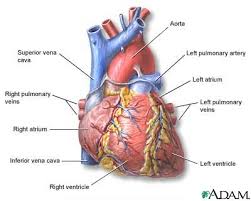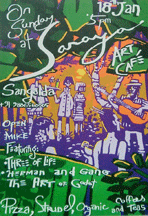As with men, women's most common heart attack symptom is chest
pain or discomfort. But women are somewhat more likely than men to
experience some of the other common symptoms, particularly shortness of
breath, nausea/vomiting, and back or jaw pain. Heart Attack Warning Signs
Heart Attack Warning Signs
Some heart attacks are sudden and intense — the "movie heart
attack," where no one doubts what's happening. But most heart attacks
start slowly, with mild pain or discomfort. Often people affected aren't
sure what's wrong and wait too long before getting help. Here are signs
that can mean a heart attack is happening:
Learn the signs, but remember this: Even if you're not sure it's a
heart attack, have it checked out (tell a doctor about your symptoms).
Minutes matter! Fast action can save lives — maybe your own. Don’t wait
more than five minutes to call 9-1-1 or your emergency response number. Calling 9-1-1 is almost always the fastest way to get lifesaving
treatment. Emergency medical services (EMS) staff can begin treatment
when they arrive — up to an hour sooner than if someone gets to the
hospital by car. EMS staff are also trained to revive someone whose
heart has stopped. Patients with chest pain who arrive by ambulance
usually receive faster treatment at the hospital, too. It is best to
call EMS for rapid transport to the emergency room.
Stroke Warning Signs
If you or someone with you has one or more of these signs,
don't delay!
- Sudden numbness or weakness of the face, arm or leg, especially on one side of the body
- Sudden confusion, trouble speaking or understanding
- Sudden trouble seeing in one or both eyes
- Sudden trouble walking, dizziness, loss of balance or coordination
- Sudden, severe headache with no known cause
 |
|
A TIA, or transient ischemic attack, is a "warning stroke" or "mini-stroke" that produces stroke-like symptoms but no lasting damage. Recognizing and treating TIAs can reduce your risk of a major stroke. The usual TIA symptoms are the same as those of stroke, only temporary. The short duration of these symptoms and lack of permanent brain injury is the main difference between TIA and stroke.
Cardiac arrest strikes immediately and without warning. Here are the signs:
- Sudden loss of responsiveness (no response to tapping on shoulders).
- No normal breathing (the victim does not take a normal breath when you tilt the head up and check for at least five seconds).
If these signs of cardiac arrest are present, tell someone to call
9-1-1 or your emergency response number and get an AED (if one is
available) and you begin CPR immediately.
If you are alone with an adult who has these signs of cardiac arrest,
call 9-1-1 and get an AED (if one is available) before you begin CPR.
Use an AED as soon as it arrives.Quick Links:
Heart
Attack Warning Signs
Stroke
Warning Signs
Cardiac
Arrest Warning Signs
| < Prev | Next > |
|---|
















